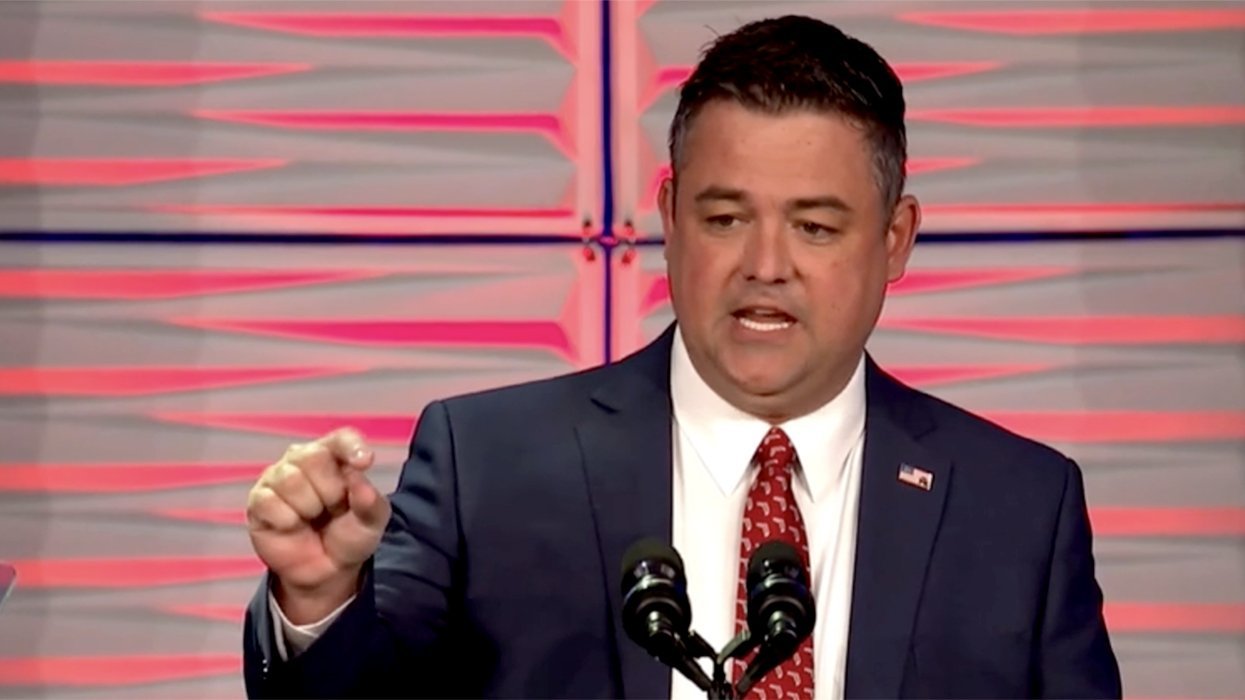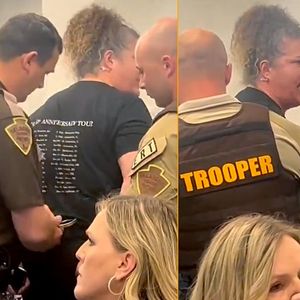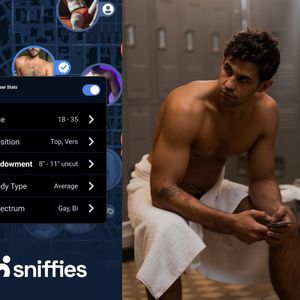Let us paint an all-too-true picture for you.
Lance, a trans man, started his first year of college in fall 2012. While most other students were buying their books and saying goodbye to their high school friends, Lance was at home searching for answers on his computer. As a transgender student, he had many questions about what he should (or could) do to ensure that his professors would use his correct name and pronouns on a day-to-day basis.
Lance's name, at the time, was not his legal name, and he wasn't necessarily interested in everyone he met knowing this. He knew the thing about being a part of the LGBTQ community is that you don't get handed a guidebook when you come out -- you have to search for the answers on your own, which, at least currently, often includes searching the Internet.
So he sent emails to each of his instructors, letting them in on his identity and asking that they respect that. He thought the request was simple: Call him "Lance" and use male pronouns. He did not come to college to be a poster child for trans inclusion.
But when Lance arrived on his urban liberal arts college's campus as a freshman, he was quickly forced to out himself in every class he took. He found that though he would experience little overt hostility from his teachers or other students, he was -- and still is today, even as a junior -- often confronted with confusion on the part of faculty members. He feels pushed into the role of representing the entire transgender community for his entire college.
Like many institutions, Lance's school is proud of its diversity, and administrators have convinced themselves that students are free to be who and however they wish to be. But in reality, they're so convinced of their commitment to diversity that many faculty and administrators have a difficult time recognizing or accepting that some of their systems and behaviors are exclusionary or oppressive.
Rather, they are quick to declare that since they themselves are not overtly hateful toward students who are different from them, it couldn't possibly be that bad for the students. The faculty member doesn't mean any harm, so the student should just get over it.
Lance found very quickly that instructors either knew what to do or had absolutely no clue. Class after class, this pattern would continue -- some instructors would thank him for bringing them into this part of his life and accommodate his name and pronoun requests willingly. Other cases, though, were not so simple. Sometimes the instructor would not respond to his email at all. Other times the instructor would outright ignore his request and misgender him in front of everyone. And then what could he do?
Within a one-on-one interaction, of course, handling misgendering can be done safely: a correction, an apology, the end. But in front of everyone, in a college classroom? What agency does a student truly have to call out their instructor publicly? The answer: It feels like none. Such interactions get deflected into emails and private conversations that end in,"I didn't mean to insult you" or "This is hard for me too."
In other words: They are mostly well-intentioned exchanges that are nonetheless wholly unhelpful and ultimately leave the student wondering, Do I really have to go through this again with every class I take?
Which brings us back to Lance. In the end, for him, it started to feel like getting misgendered was his fault, what with the instructors wanting to know why the systems hadn't changed, why Lance himself hadn't gone through a legal name change, why this work wasn't already done before he ever made a request. So he started wondering what could be done at the institutional level, and that's when he finally found an ally in Lott.
Lott teaches a variety of classes and leads a center for faculty development at the college Lance attends. Lott knew that regardless of the best intentions of his colleagues, the lack of understanding of interpersonal dynamics surrounding the construct of the traditional gender binary can lead people to believe that misgendering others is just a minor mistake. He also believed that Lance's personal story could help convince key decision-makers to take a serious look at the systems that were inhibiting Lance's communication with faculty and sense of safety in the classroom.
As most of us have not had firsthand experience with being misgendered, we are quick to claim ignorance and to place responsibility on those who are most directly affected: in this case, the rapidly expanding and evolving population of trans-identified students. Most of us don't understand a dangerous dynamic that trans scholar Dean Spade articulates in his book Normal Life: Administrative Violence, Critical Trans Politics, and the Limits of Law: "The use of gender as a category of data for sorting populations -- something that is taken as neutral and obvious to most administrators -- operates as a potential vector of vulnerability."
Further, markers such as M and F are not the only systematic designators of gender for college and universities. As most first names are perceived as gendered or gender indicators, class rosters, campus email accounts, campus ID cards, and any other documentation that includes a name that does not match a student's expressed gender also become potential vectors of vulnerability.
So what can be done?
When Lott and Lance met, Lance thought maybe it was the job of faculty and administrators like Lott to do this work -- and, in a way, it is. But it's also true that student voices are central to this conversation. Administrators rarely change policies without a concrete context, as Lance and Lott found. In sharing stories about Lance's experiences in the classroom with other administrators, the process of change was finally able to gain some traction.
Lance was willing to share his story in efforts to improve conditions for trans-identified students and to tell it again and again, to faculty, administrators, vice presidents, and key decision-makers. Lance and Lott were able to join forces with other stakeholders, and in 12 months their institution has been able to design and formalize a process for students to request and receive a change in the name that appears on course rosters, campus cards, campus email, the learning management system, and other systems that track identity.
Name changes in institutional records are not recognized legally, so they do not affect financial aid records, official transcripts, or any other legally binding documents. And while there's clearly more work to be done, Lance's story has helped build a coalition of supporters, and they've come a long way.
While it may be true that this work is not the responsibility of the student, it is also true that very few other people are doing the work. Making change on a college campus is not an individual effort and cannot be done without students' input.
Ultimately, in order to affect the institution, students need to be invited into the conversations that faculty and staff are already having about and without them. And students, faculty, and administrators need to work together across difference -- both difference in terms of sexual and gender identity, and those across generations and positions at the institution. If you are a college student or college administrator with questions about trans issues, check out Campus Pride's Trans Policy Clearinghouse, Transgender Law Center's College Guide, and Transgender Student Education Resources.
LANCE COX is a cultural studies student at Columbia College Chicago, where he also engages in social justice work as a One Tribe scholar. You can find him on Twitter @lancetcox.
LOTT HILL is a writer and a collaborative educator with a passion for and commitment to social and restorative justice and civic engagement. He is a regular contributor to Chicago's live storytelling series 2nd Story.


















































































